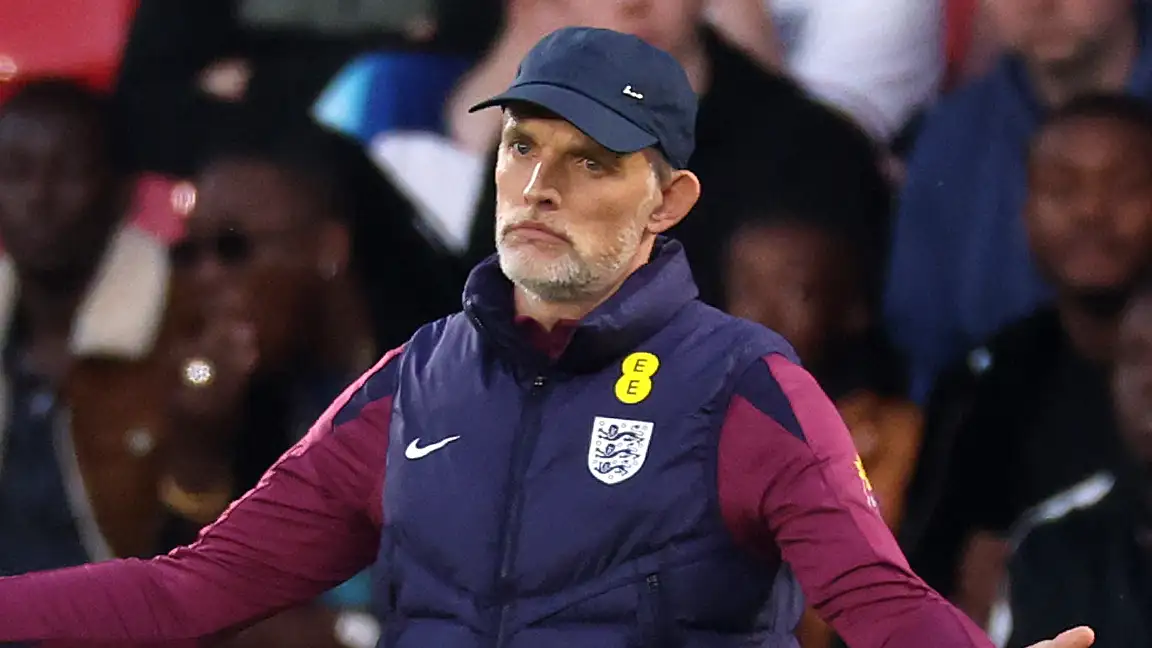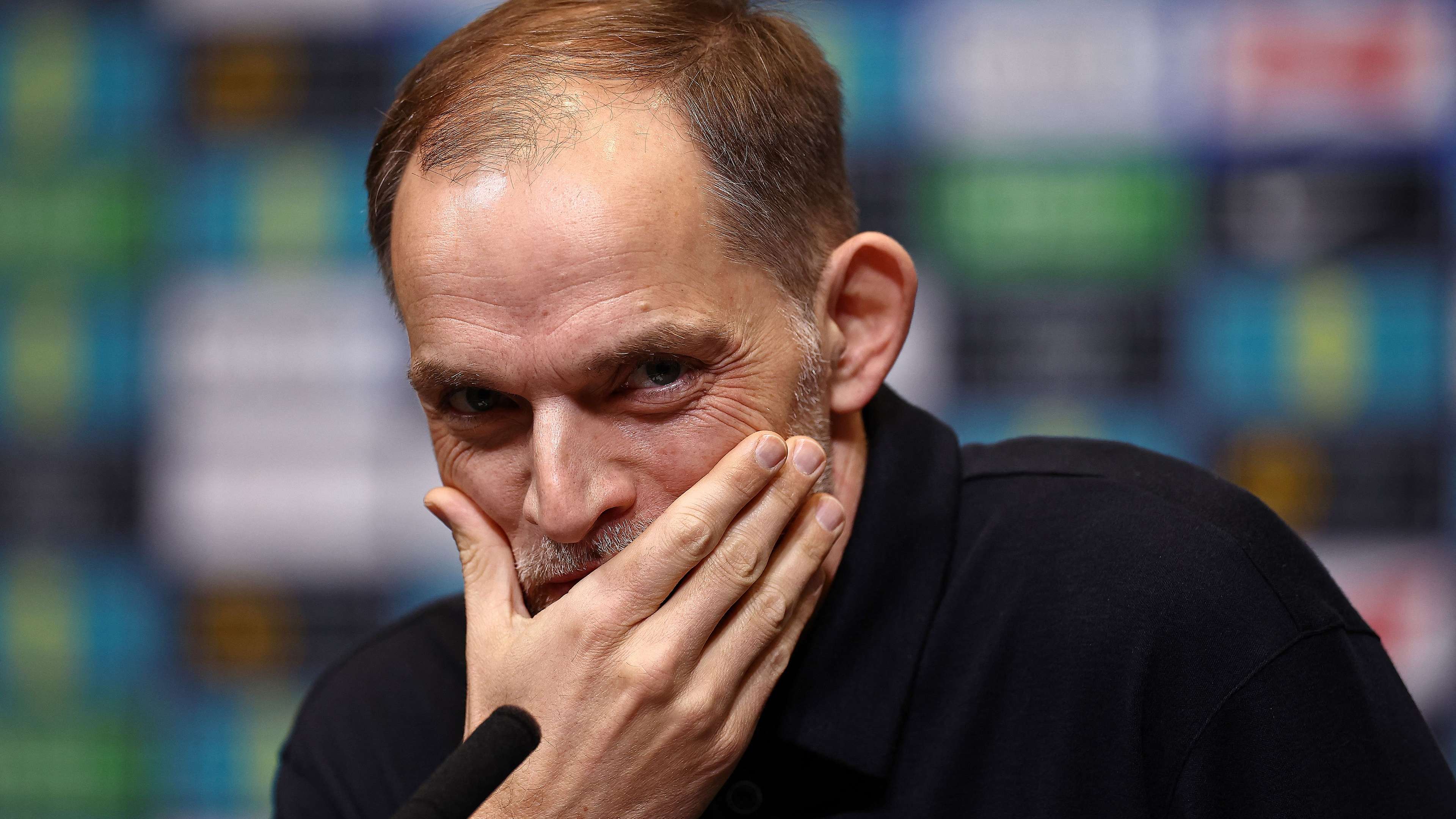
World Cup Protest: England and Thomas Tuchel to Challenge FIFA Over Key Rule Change Ahead of 2026 Tournament
The countdown to the 2026 FIFA World Cup in North America has already begun—and not without controversy. England, alongside outspoken German tactician Thomas Tuchel, are gearing up for a unique kind of challenge. But this time, it’s not about beating Brazil or surviving penalties. Instead, their opponent is FIFA itself, and the battlefield is a rule change that could shake up the tournament in a big way.
England and Thomas Tuchel Join Forces to Oppose FIFA’s New Base Camp Rule
Since its inception, the World Cup has evolved in format, technology, and logistics—but one thing that remained a comfort for national teams was the ability to settle into a single, consistent base camp. During the last edition in Qatar in 2022, teams picked a “home away from home,” where players, staff, and even family members could remain throughout the tournament. It was more than just convenience; it was about building rhythm, unity, and a familiar daily routine in an otherwise chaotic and high-pressure environment.
But for the 2026 edition—jointly hosted by the United States, Canada, and Mexico—FIFA has decided to rip up that script.
What Exactly Has Changed?
Under the new rule introduced by FIFA, teams that advance past the group stage will no longer be allowed to stay in their original base camps. Instead, they’ll be required to relocate closer to the city where their next match is taking place.
At first glance, this might not seem like a massive change. After all, more than 80 cities across the three host nations have expressed interest in staging matches. But for teams like England, whose preparation thrives on consistency and controlled environments, this policy shift is significant—and not in a good way.
The English FA’s Response: “It’s About More Than Travel Time”

FBL-WC2026-EUR-DRAW
According to sources close to the FA, England are seriously concerned about the practical and psychological toll of repeatedly relocating during a tournament that’s already longer and more complex than previous editions. With 48 teams participating for the first time in history, logistical demands are higher than ever.
The FA had originally identified Kansas as a preferred base camp location, due to its central geography and relatively short travel distances to key venues—most under four hours by flight. However, the new rule would render that planning moot if England progresses beyond the group stage.
“Travel is just one part of it,” an FA insider reportedly said. “You’ve got players who have families with them, teams that rely on specific dietary routines, medical setups, training facilities. Moving all that mid-tournament creates instability—exactly what you don’t want when you’re heading into the knockout rounds.”
Thomas Tuchel: From the Touchline to the Policy Battlefield
Enter Thomas Tuchel. The former Chelsea manager, now a potential candidate for a future England role or perhaps simply offering advisory input, has thrown his weight behind the protest. Known for his meticulous preparation and attention to detail, Thomas Tuchel is no stranger to the importance of environment and consistency.
Tuchel is reportedly traveling to the United States next week—not just to watch Manchester City face Juventus in a Club World Cup clash in Florida, but also to scout possible training sites and assess the feasibility of operating under the new rules.
Speaking to sources in Germany, Thomas Tuchel didn’t mince words: “If FIFA wants the best football, they have to give teams the best conditions. Moving base camp mid-tournament is a risk—to performance, to health, and to planning. It’s unnecessary chaos.”
What’s at Stake for the Three Lions?

FBL-WC-ENG-2026-QUALIFIERS-TRAINING
For England, this isn’t just about one regulation—it’s about maximizing their chances in what many are calling their best window for World Cup success since 1966. With a golden generation maturing (Jude Bellingham, Bukayo Saka, Phil Foden, and others), every marginal gain counts. And for manager Gareth Southgate—whose contract situation remains a hot topic—a strong run in 2026 could be legacy-defining.
Changing base mid-tournament, according to insiders, disrupts not only the physical logistics but also the psychological state of the team. Players thrive on routines, and the presence of family and familiar surroundings has been shown to reduce anxiety and boost morale. England’s performance in 2018 and 2022 benefited significantly from tightly knit squad camps.
FIFA’s Viewpoint: Flexibility or Forcing a New Era?
FIFA, for their part, argue that the new rule is intended to reduce travel distances between match locations and base camps. With three countries involved, it’s a logistical behemoth, and the governing body believes that forcing teams to relocate will minimize dead mileage and improve environmental sustainability.
But critics, including Thomas Tuchel and the English FA, see it differently. They argue that centralized base camps already factor in travel efficiency, and that forcing teams to uproot everything between matches only complicates things further.
Not Just England: Other Nations Quietly Concerned
While England are currently the loudest voice in the room, they’re not the only ones raising eyebrows. Sources suggest that other major federations—like Germany, France, and Brazil—are monitoring the situation closely and may soon join the protest if FIFA remains firm.
Interestingly, it’s Thomas Tuchel’s involvement that’s giving this pushback real momentum. As a high-profile coach with Champions League and World Cup experience (at club and assistant level), his influence in both the European and American footballing landscapes is significant.
What Happens Next?

FBL-ENG-PRESSER
Tuchel’s trip to the U.S. next week could prove pivotal. He’s expected to meet with representatives from multiple states to assess training sites, facilities, and hospitality setups that could accommodate England or other top-tier national teams. His findings will likely shape the FA’s final decision on where to base their team, but they’ll also feed into a formal appeal to FIFA regarding the rule change.
Meanwhile, discussions are intensifying behind closed doors, with UEFA reportedly acting as a potential mediator. There’s still time for FIFA to tweak the policy—whether they will or not is anyone’s guess.
Final Thoughts: A Rule Worth Protesting?
At first glance, protesting over a base camp relocation rule might seem trivial. But at this level of the game, the margins are razor-thin. A disrupted sleep pattern, a missed training session, a delay in recovery equipment—all of these can spell the difference between quarter-final heartbreak and lifting the trophy.
England and Thomas Tuchel clearly believe the rule change poses a real threat to the kind of stable, high-performance environment elite teams need. Whether FIFA listens—or whether this becomes yet another chapter in the long story of governing bodies vs. national teams—remains to be seen.
One thing is clear: this World Cup protest is about more than geography. It’s about principle, performance, and ensuring that football’s greatest stage doesn’t become its most chaotic one.




























There are no comments yet. Be the first to comment!